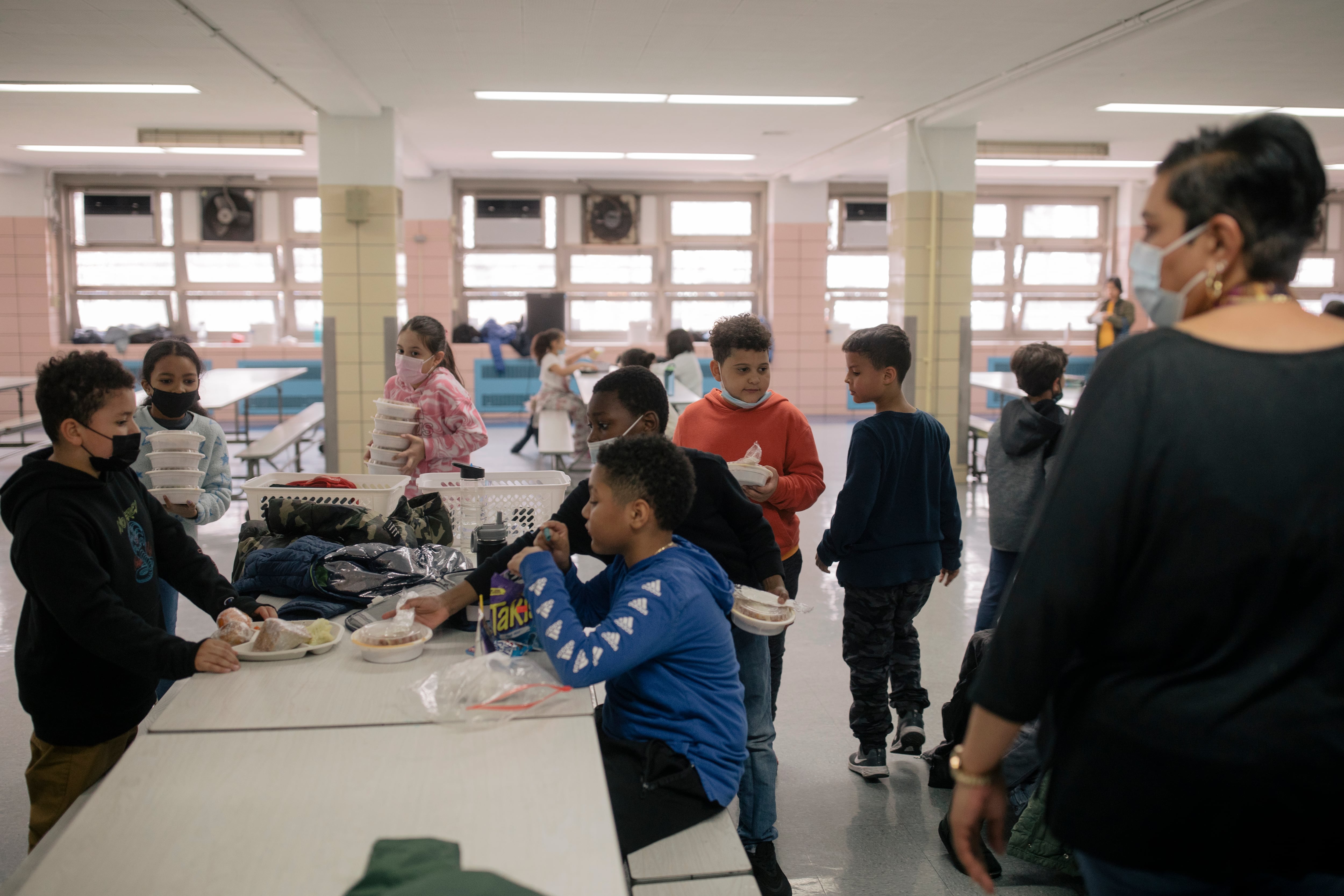Sign up for Chalkbeat New York’s free daily newsletter to keep up with NYC’s public schools.
For families across New York City, unused food benefits from the final installment of a pandemic-era program have already begun to expire — but some will see additional funds through a new program that lays on the horizon.
The funds — known as the Pandemic Electronic Benefit Transfer, or P-EBT — have been disbursed in several installments since 2020 to help cover meal costs for families whose students usually receive free meals at school. Because New York City’s public schools have universal meals, all families were eligible for the program regardless of household income.
But as P-EBT ends, tens of millions of dollars from the most recent disbursement remain unspent, according to figures provided to Chalkbeat.
As of April 22, more than 381,000 P-EBT cards with funds issued for the summer of 2023 had not been used in New York City, meaning over $45 million in potential benefits was at risk of expiring, according to data provided by David Rubel, an education consultant who has been raising alarm about the unspent federal benefits. For the state as a whole, more than 740,000 cards had not been redeemed, leaving over $88 million in total on the table.
Those funds began rolling out to families in August last year, state officials said. Since the benefits expire 274 days after they were last used, families who never used the cards may have already seen their funds expire.
While advocates have praised the P-EBT program as a lifeline for families struggling with food insecurity, the rollout of the federal funds left some struggling to access them. Parents previously told Chalkbeat they never received their cards, or had trouble getting help using their cards from a state hotline. Meanwhile, community organizations said language barriers posed an issue in disseminating information about the benefits to families who needed them.
“There are very important lessons to be learned from P-EBT in order to have a successful Summer EBT program,” said Rubel, who obtained the data through a state records request.
To Rubel, school districts are best positioned to conduct outreach about the summer meal funds, sharing information directly with families.
Officials from the state’s Office of Temporary and Disability Assistance, which has overseen the summer meal programs, said the agency is working closely with state and city education departments, as well as community partners, to conduct outreach and education efforts for the Summer EBT program, including information and guidance that can be distributed directly to families.
“OTDA worked tirelessly to follow federal guidelines and provide Pandemic EBT benefits to millions of eligible school children throughout the state who lost access to free and reduced-price school meals as a result of school closures during the public health emergency,” said a spokesperson for the state agency.
Officials added the agency conducted “extensive public outreach,” and partnered with advocacy groups across the state to raise awareness about the benefits.
There are key differences between P-EBT and the new Summer EBT program. Unlike the pandemic-era program, not all New York City families will be eligible to receive the summer funds.
Under federal guidelines, a child is only eligible for the program if they attend a school with free lunch and meet household income requirements for free- or reduced-price school meals. And families who do receive them will have fewer days to use them. Summer EBT funds will expire 122 days after they are issued.
While officials note most eligible families — like recipients of SNAP, Temporary Assistance, or Medicaid — will automatically receive the funds, some families may need to apply. Families who will automatically receive them will be notified via a letter this summer, state officials said.
For others, an online application will open in July, with applications due by Sept. 3, according to state officials.
Julian Shen-Berro is a reporter covering New York City. Contact him at jshen-berro@chalkbeat.org.






